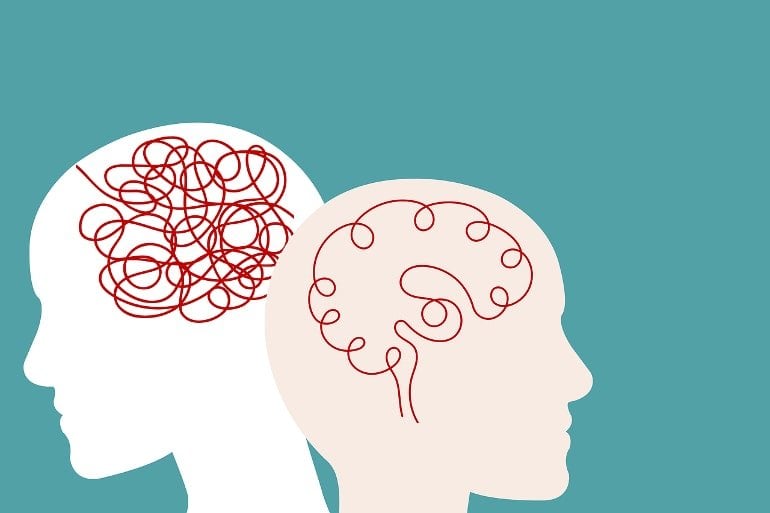Summary: Bipolar patients who received emotion-focused therapy showed increased connectivity and activation in the amygdala post-intervention compared to those who received cognitive behavioral therapy.
Source: Elsevier
A new study in Biological Psychiatry: Cognitive Neuroscience and Neuroimaging identifies a therapeutic tool focused on emotional awareness that increased activation and connectivity of an emotion-regulating center in the brain.
The therapy may be effective in the long-term treatment and relapse prevention of bipolar disorder (BD).
Patients with BD experience alternating extreme mood states typically categorized by mania, depression, and impaired social functioning. The complex mechanisms of BD make it difficult to treat, often requiring a concoction of medications and behavioral interventions, which can take the provider and patient years to successfully personalize.
Led by Kristina Meyer, PhD, and Catherine Hindi Attar, PhD, at Charité – Universitätsmedizin Berlin, in Berlin, Germany, the researchers investigated the impact of two psychotherapeutic interventions on BD symptoms and on amygdala activation and connectivity with other emotion-related brain regions using functional magnetic resonance imaging (fMRI).
The amygdala — a pair of small, bilateral regions in the brain’s limbic system — helps regulate emotion and detect salient stimuli. Research has shown that BD patients (outside of a manic episode) display altered activation and functional connectivity of the amygdala.
In one intervention, 28 patients underwent an emotion-focused therapy where they were guided to perceive and label their emotions without avoidance or suppression. The second intervention, delivered to 31 participants, was a specific cognitive-behavioral therapy that focused on practicing social interventions.
The researchers recorded the patients’ symptoms using a longitudinal evaluation interview for 24 weeks pre-treatment as well as for six months throughout treatment, six months post-treatment, and between six and 12 months post-treatment.
The evaluation produced separate weekly measures of mania and depression on a 1 to 6 scale ranging from no symptoms (1) to psychotic symptoms or severe functioning impairments (6). Seventeen participants from each treatment group underwent fMRI while performing an emotional face-matching task, as did 32 healthy control subjects.
“In line with our expectations, the patients participating in the emotion-focused therapy showed an increased activation and connectivity of the amygdala post-intervention compared to the patients receiving the cognitive-behavioral intervention, which may reflect improved emotion processing and increased tolerance towards negative emotions,” said Dr. Meyer.
In contrast, the patients of the cognitive-behavioral intervention demonstrated increased activation of brain regions related to social function but not altered amygdala activity.

“The results of this study suggest that different psychotherapeutic approaches unfold their beneficial effects by different neural routes,” added senior author Felix Bermpohl, PhD, Charité – Universitätsmedizin Berlin.
Cameron Carter, MD, Editor of Biological Psychiatry: Cognitive Neuroscience and Neuroimaging, said of the work, “This study, which uses task fMRI to engage specific brain circuits affected by bipolar disorder before and after different forms of therapy, reveals new insights regarding their mechanisms of action in the brain.
“The pattern of results seen using this approach also provides a unique form of validation for the clinical approach used, by establishing a link between the theoretical model motivating the emotion-focused intervention and its effects in the brain.”
About this bipolar disorder research news
Author: Eileen Leahy
Source: Elsevier
Contact: Eileen Leahy – Elsevier
Image: The image is in the public domain
Original Research: Open access.
“Daring to feel: Emotion-focused psychotherapy increases amygdala activation and connectivity in euthymic bipolar disorder. A randomized controlled trial” by Kristina Meyer et al. Biological Psychiatry: Cognitive Neuroscience and Neuroimaging
Abstract
Daring to feel: Emotion-focused psychotherapy increases amygdala activation and connectivity in euthymic bipolar disorder. A randomized controlled trial
Objectives
In bipolar disorder (BD), the alternation of extreme mood states indicates deficits in emotion processing, accompanied by aberrant neural function of the emotion network. The present study investigated the effects of an emotion-centered psychotherapeutic intervention on amygdala responsivity and connectivity during emotional face processing in BD.
Methods
In a randomized controlled trial within the multicentric BipoLife project, euthymic BD patients received one of two interventions over six months: an emotion-focused intervention where patients were guided to adequately perceive and label their emotions (FEST, n = 28) or a specific, cognitive-behavioral intervention (SEKT, n = 31). Before and after interventions, functional magnetic resonance imaging (fMRI) was conducted while patients completed an emotional face-matching paradigm (final fMRI sample of pre- and post-completers, SEKT: n = 17; FEST: n = 17). Healthy controls (n = 32) were scanned twice after the same interval without receiving any intervention. Given the focus of FEST on emotion processing, we expected FEST to strengthen amygdala activation and connectivity.
Results
Clinically, both interventions stabilized patients’ euthymic states in terms of affective symptoms. At the neural level, FEST versus SEKT increased amygdala activation and amygdala-insula connectivity at post relative to pre-intervention timepoint. In FEST, the increase in amygdala activation was associated with fewer depressive symptoms (r = .72) six months post-intervention.
Conclusion
Enhanced activation and functional connectivity of the amygdala FEST versus SEKT may represent a neural marker of improved emotion processing, supporting the FEST intervention as effective tool in the relapse prevention of BD.







